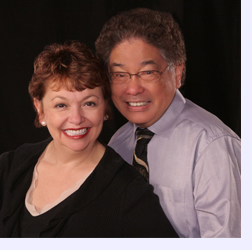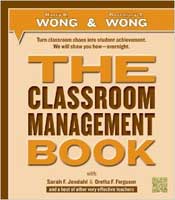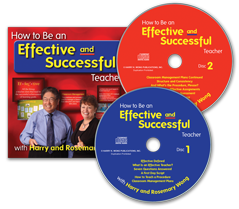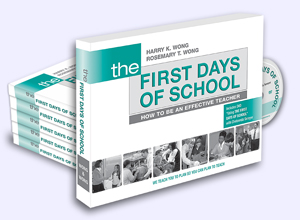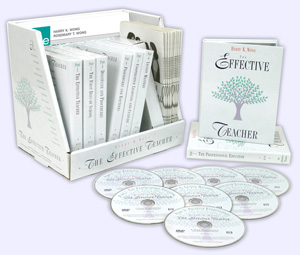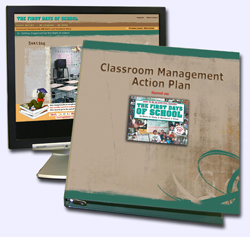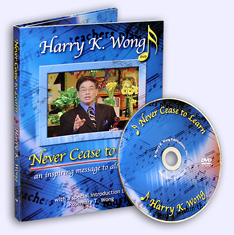|
 |

Special to the Gazette
October 2012
The Lasting Impact of Instructional Coaching
Instruction is defined by Robert Marzano as, “It is what gets taught.” And Mike Schmoker says, “Lay out a sound set of standards and then actually teach these standards and there will be an immense increase in levels of achievement almost immediately.” Cause-Effect Coaching David uses a “cause-effect coaching” method. He shows teachers what they are doing or are not doing (the cause) and how it is related to what the students are learning or not learning (the effect). The purpose is to show the teacher that the students may not be the cause of why the students are not learning. You’ve heard this more than once:
True, many kids come from a poverty-stricken and dysfunctional family, but that is not something a teacher can change or do anything about. What’s important and relevant is what cause a teacher can create to produce learning. The cause-effect concept was shown in the original work on classroom management by Jacob Kounin. He summarized his research from observing teachers and classrooms and concluded that it was “the behavior of the teacher and not the behavior of the students that resulted in student learning.” David says, “School leaders and teachers must always examine how their actions or inactions may be creating barriers or creating enhancements to learning.” It’s what a teacher does that affects student learning and that is what David coaches. David says, “My work is practical. What matters most is what happens in the classroom. I show them how they can be effective and successful and that is what my coaching is all about.”
David is happy to help others with the practical information and coaching tips he shares on his website. The Purpose of Coaching The purpose of coaching is to help teachers enhance their classroom management and instructional skills so they can get better student learning results. You may have watched the summer Olympics. Every athlete had one or more coaches in the stands or on the field. Their job was to help the athlete reach or even exceed the athlete’s potential. While watching the event you may have seen the Olympic record and the world record posted in the corner of the screen and as the event progressed it was exciting to see if the contenders could exceed one or both of the records. The purpose of coaching is to help people exceed their potential. Coaching is focused on improving student results. Coaching is practical and can be implemented immediately. When coaching is added to the staff development process,
Next to the principal,
Do not confuse coaching with mentoring as there is a major difference between the two. Mentoring is often no more than a “buddy system” with an experienced teacher who may not have been trained nor given any school or district set of goals. Little if any research can be found that validates the use of a mentor to build teacher potential. Mike Schmoker has found, “So called ‘mentors’ are everywhere these days, but they aren’t often given release time or a clear, compelling charge. Research has not been found that supports the systematic formation of effective teachers solely through the use of mentors, especially mentors who show up after school begins and may not have been trained, compensated, or given direction or goals to attain.” Read more on the lack of research to support mentoring. The Lasting Impact of Instructional Coaching
David replied, “Well, let’s work together to un-overwhelm you.” Thus began their first coaching conference where, as is customary when he coaches teachers, David’s feedback for Emily fell into two categories:
David helped Emily identify her current effective practices. Rather than pointing out what is wrong, David sets a positive tone for the coaching process by finding a practice that will help restore hope and confidence for struggling teachers. Instead of telling a teacher what they need to do to improve, inferring an implication, or even accusing of wrongness, he finds something they are already doing well to use as the first step toward enhancing their overall performance. David is specific in his word choice. Notice he says, “enhance” rather than “improve.” We do not like to be told we need to improve, but we will do things to enhance ourselves—which is why we like to exercise, seek additional education, and treat ourselves to spa treatments. David finds that teachers are often unaware that they are inconsistent with what they are doing. Helping teachers be more consistent will enhance effectiveness. For instance, David noticed Emily was responding inconsistently when students were off task. Sometimes she called out to students from across the room: “No talking, Anthony. You should be working.” Other times she approached students at their desks to find out why they were off task and how she could help them. It was an immediate aha moment for Emily when David shared his observations with her. David noticed that students were much more cooperative when she used an up close and personal troubleshooting approach than when, in her words, she “barked at them from across the room.” Ideally, of course, students wouldn’t be off task in the first place, which became the goal of David’s future coaching sessions with Emily. He began by helping Emily see cause-effect relationships between her actions (or inactions) and students’ reactions, including several related to communication. She was, for example, using negative language that elicited resistance from students rather than cooperation. Although Emily knew what she expected of students, she failed to teach, rehearse, and reinforce the appropriate procedures. (To see how to teach, rehearse, and reinforce a procedure, please read pages 175–180 in The First Days of School.) Here are a few cause-effect connections David helped Emily see. During her coaching sessions they agreed on possible solutions:
After eight coaching sessions, Emily had implemented the above ideas as well as several others she and David discussed. And the effect was profound. David’s final visit to Emily’s classroom began with her giving directions for a math activity orally and visually using the interactive whiteboard. She then confirmed students understood those directions before instructing them to obtain materials and begin the activity. And from start to finish, every student was engaged, including a girl who, after completing the activity, was reading a book on the rug in the back of the room—perfectly acceptable in accordance with Emily’s new “Early Finisher” procedure. Most memorable for David was when a boy called him over for help. “I’d like to help, but doesn’t Ms. McGinley want you to ask your classmates for help when you’re stuck?” asked David. “Yes, but I already asked three before me,” the boy replied, a reference to Emily’s new expectation that students ask three classmates for help before asking her. Clearly Emily McGinley was no longer the only one who knew what she expected of students. This is because students can only be responsible when they know Less than two months after considering herself a horrible teacher, Emily was on her way to becoming an effective one. Best of all, the impact of coaching lasted for Emily, as she acknowledged two years later:
Content-Focused Coaching “I’m stale, and I’m boring the kids to tears,” said Bill Buchanan who was in his 19th year as a math teacher in Chicago. Incredibly, he had received a superior teacher rating each of the previous 18 years. Yet, Bill knew he could and must do even better for his students, so he reached out to David. As with Emily, David’s support for Bill focused on reinforcing and enhancing what he was already doing well. But whereas the focus in Emily’s case was classroom management and general instructional strategies, for Bill it was math curriculum and instruction. In particular, he and David set three goals:
David’s work with Bill around math content involved identifying and troubleshooting common student misconceptions and developing activities that allowed students to derive and apply definitions, properties, and formulas rather than memorize them. To make lessons more interactive, they used technology, devised questions to pull information from students rather than give it to them, and moved students from rows into collaborative groups. And they achieved the third goal, higher order thinking, through many of the same ways they achieved the other goals, and through enrichment activities such as math games and puzzles. David used a technique called “content-focused coaching.” In content-focused coaching a coach and a teacher zero in on the daily task of planning, teaching, and reflecting on lessons by addressing standards, curriculum, lesson design, and assessment. Content-focused coaching is related to apprenticeship, in which an apprentice is observed while carrying out a task and the master craftsman offers hints, provides support, gives feedback, models, gives reminders, and poses new tasks aimed at bettering performance. Content-focused coaching is focused on the content students are to learn; whereas, mentoring is often focused on “reflective conversations.” Additional information on “content-focused coaching” is available on the Internet or in the book Content-Focused Coaching: Transforming Mathematics Lessons by Lucy West and Fritz C. Staub. Although the objectives of David’s coaching for veteran teachers like Bill may be different than it is for new teachers like Emily, the impact is the same as shared by Bill:
Substance and Style The success of how David coaches can be divided into two areas: substance and style. “Teachers make countless decisions each day that affect children academically, socially, and emotionally,” says David. “This is why coaches must observe classrooms through the lenses of students. If students aren’t learning to their potential, why are they falling short? Is it lack of clarity around procedures? Is it confusion about the content? It’s not enough to tell teachers that students are confused or disruptive, since they can usually see this for themselves. Coaches must help them see why students are confused or disruptive.” Most importantly, coaches must help teachers find solutions. That’s substance. “In short, instructional coaches must provide teachers meaningful feedback in a respectful, constructive way,” David Ginsburg says. “And when they do, the impact on teaching and learning is large and lasting.” The manner in which coaches help teachers find solutions is style. David helps teachers enhance their current successful practices. Watch this video and see David’s substance and style. If you want to contact David, email him at david@ginsburgcoaching.com. Coaching as a Journey This is not the first article on coaching we’ve written for teachers.net. These are some of the past columns:
All of these articles featured coaches who enhanced the teaching performance of others. With their skills, talents, dedication, and patience, coaches are able to provide hope, launch renewal, and open vaults of dreams locked away deep in the hearts of teachers. David took Emily on a journey from a horrible teacher to one who now helps other struggling teachers. David took Bill on a journey from a stale, superior teacher to one who later helped others as an instructional coach. Coaches are not just for educators new to the profession; coaches are life companions who can guide and direct and help you reach your fullest potential in helping children. They leave indelible marks on the professional practice of those they serve. In his many years of coaching practice, David has built a super highway for teachers to excel and students to achieve. It’s David's ability to truly help in a professional manner that nets him positive results. This same concept can be practiced by you in the classroom.
You are a teacher. But, be a coach and show all students the road to unlimited potential.
|
||||||||||||||||||||||||||||||
|




